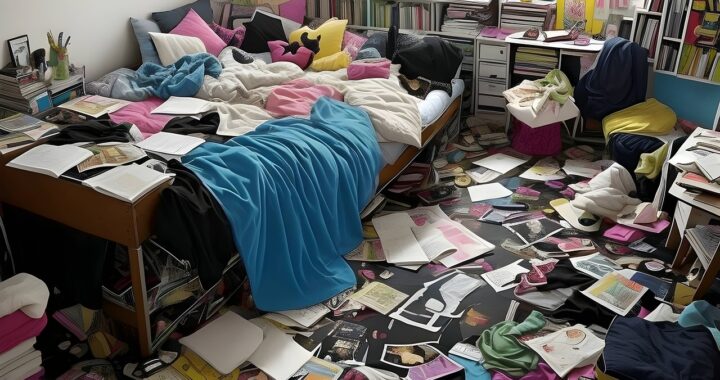Introduction: As we traverse the journey of life, it’s commonplace to amass an array of possessions – photographs evoking nostalgia, clothes once cherished, or kitchen gadgets seldom used. This habitual collection of items, while seemingly innocuous, often leads to a desire for more space, prompting moves to larger abodes every decade or so. But what if the secret to a fuller life lies in the art of living with less?
The Case for Decluttering: Clutter, a seemingly benign presence in our homes and digital spaces, has far-reaching impacts on our mental well-being and productivity. It’s linked to diminished creativity, heightened anxiety, and even physical symptoms like allergic reactions. The minimalist movement, rooted in the 1960s art scene, now presents a compelling lifestyle choice, advocating for the reduction of consumerism and the prioritisation of life’s essentials.
Joshua Millburn and Ryan Nicodemus of ‘The Minimalists’ encapsulate this ethos as a tool “to rid yourself of life’s excess in favour of focusing on what’s important — so you can find happiness, fulfilment and freedom.”
The Psychological Impacts of Clutter: Our purchasing decisions, often driven by emotional triggers, lead us to assign sentimental value to objects, making it harder to part with them. This accumulation can cloud our focus and impede information processing. Studies, including those by Princeton University and researchers in Los Angeles, have highlighted the stress and performance deficits linked to cluttered environments.
Clutter clearing and feng shui: the ancient art of feng shui, the arrangement of our living spaces is not just a matter of aesthetics but a profound practice aimed at balancing the energies in our environment to foster health, happiness, and prosperity. At the heart of feng shui is the principle that our surroundings are a reflection of our internal state. Clutter, in this context, is more than just a physical nuisance; it represents stagnant energy and mental blockages that can impede the flow of positive chi (energy) in our homes and lives.
Clutter clearing, therefore, is not merely an act of tidying up; it’s a transformative process that aligns with the core tenets of feng shui. By thoughtfully removing items that no longer serve us and organising our spaces to promote a smooth flow of energy, we can create an environment that supports our wellbeing and goals. This process of decluttering goes beyond mere cleaning – it’s an exercise in mindfulness and intention, encouraging us to let go of the old to make room for new opportunities and experiences.
As we embark on this journey of decluttering through the lens of feng shui, we not only tidy our physical spaces but also clear mental clutter, paving the way for clarity, tranquillity, and a rejuvenated spirit. The harmonious spaces we create become a sanctuary for growth, creativity, and peace, reflecting the harmonious balance we strive to achieve in every aspect of our lives.
Digital Clutter: Clutter is not restricted to the physical realm. Our digital spaces – replete with incessant notifications and unorganised files – also contribute to mental clutter, triggering similar stress responses.
Living with Less: Adopting a minimalist approach doesn’t just declutter your space; it can enhance your life. A tidy environment promotes healthier eating, better air quality, and a sense of well-being. Reducing possessions also frees up time for more meaningful activities and relationships.
Practical Steps for Decluttering: The journey to minimalism is gradual. Here are some strategies:
- Choose Quality: Opt for fewer, high-quality items that bring joy and functionality.
- Wardrobe Wisdom: Streamline your clothing to items that are versatile and frequently worn.
- Digital Cleanse: Embrace digital minimalism by unsubscribing from unnecessary emails and going paperless where possible.
- Room-by-Room Approach: Tackle one area at a time, from the kitchen to the living room, keeping only what you need and love.
- Mindful Purchasing: Adopt a ‘one in, one out’ rule to avoid re-cluttering your space.
Maintaining a Minimalist Space: To sustain a decluttered environment, develop habits like regular reviews of possessions, mindful spending, and daily organisation of your workspace.
Conclusion: Embracing minimalism and feng shui principles in our lives isn’t just about physical decluttering; it’s a transformative journey towards mental clarity, improved well-being, and a deeper appreciation of what truly matters.
References:
- The Art History of Minimalism
- The Minimalists on Minimalism
- Studies on the Psychological Impact of Clutter

